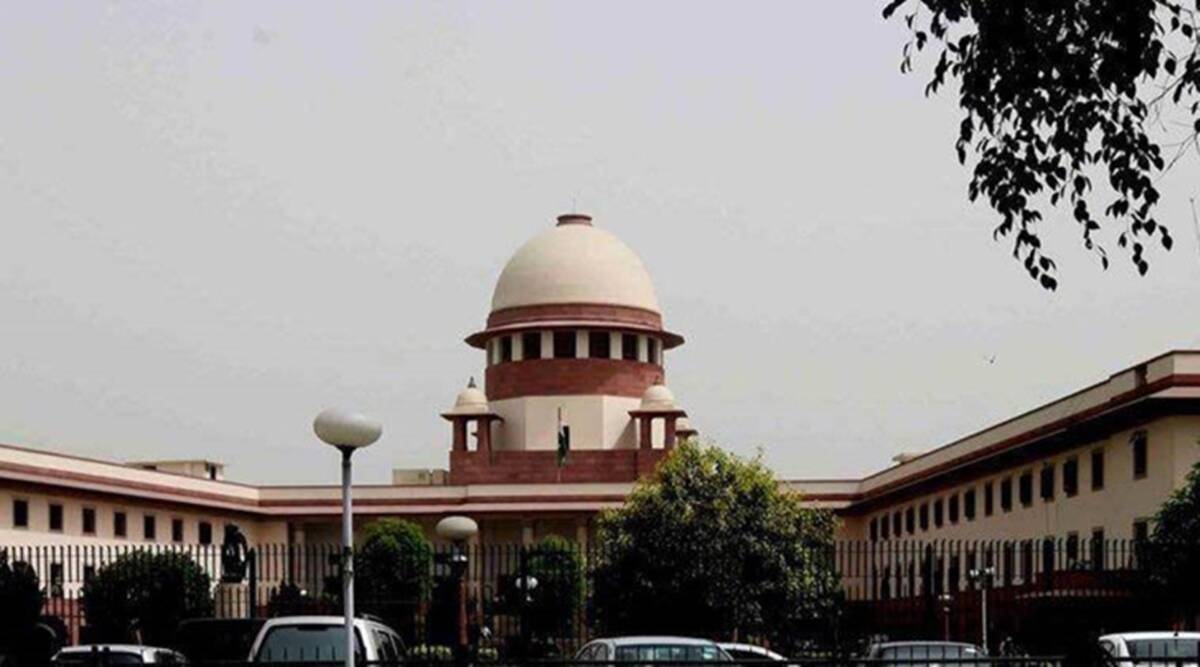 Supreme Court. (File Photo)
Supreme Court. (File Photo)Opposing the plea seeking a ban on political parties promising ‘freebies’ to lure voters in the run-up to elections, the Aam Aadmi Party (AAP) has told the Supreme Court that “schemes for socioeconomic welfare of deserving and disadvantaged masses cannot be described as ‘freebies’”.
The party also accused the petitioner — who it said has “strong links” to BJP — of “furthering a particular political agenda”.
In an application seeking intervention in the PIL filed by advocate Ashwini Upadhyay, the AAP stated that the plea “clearly seeks judicial action against a particular model of economic development by exclusively targeting fiscal expenditure on socialist and welfarist measures for the masses”. But, AAP said, it “ignores the vast fiscal losses to the exchequer caused by tax rebates, subsidies and other such ‘freebies’ routinely provided to big industries and businesses by the Centre and various state governments”.
“Instead, the petitioner prefers that the burden of improving the fiscal health of the nation be imposed solely on the underprivileged masses,” it said.
Subscriber Only Stories
The application stated that the plea “neglects to acknowledge that a socialist and welfarist economic agenda is built into the Constitution of India by way of the Preamble and the Directive Principles of State Policy and is, therefore, the constitutional mandate of any elected government…. By removing such socialist and welfarist agenda from electoral discourse, the petitioner seeks to advance the interests of a different, more parochial kind of politics reliant on caste and communal appeals instead of on appeals to people’s welfare.”
The petition also raises questions of freedom of speech of the political parties, the application stated.
Giving a list of schemes such as free canteens, free and subsidised electricity and water, etc, AAP said they “are absolutely essential in an unequal society such as ours”, and that “to describe them as ‘freebies’, despite their immense social utility and their impact on both the social and economic development of the country, is not just incorrect, but also an affront to our constitutional project…”
The party said that if a discussion has to take place on “freebies” and their connection to fiscal health of the country, then the discussion has to be first in respect of what is being given to politicians, ministers, MPs and MLAs. If the idea is resource-conservation within the nation, then it should not begin with the “deserving masses who are constitutionally entitled to support in attaining a dignified standard of living, but the political and governing class which has, in the past and even now, been a significant beneficiary of the State’s largesse, through, inter alia, free housing in prime areas of national and state capitals, given to Ministers/Members of Parliament/civil servants, etc”.
The AAP also stated that “the Petitioner because of his politics has consciously chosen not to flag the large amount of fiscal loss which the State and consequently the people suffer because of very selective benefits given to certain industrial sectors, the net effect of which is to benefit and enrich certain business houses”.
The application stated that if fiscal responsibility is the concern, then “it is relevant to remember that fiscal issues are both complex and contingent on geography and time and are thus unamenable to strait-jacketed or binary solutions that any litigation may throw up”, the application stated. It said enactments such as Fiscal Responsibility and Budget Management Act, 2003, already exist, “which have the effect of legislatively restricting the deficits that a government can run”.
It prayed that should the court go into the fiscal issue, “then the stakeholders could be directed to consider imposing a budgetary limit on free/subsidised services depending on the overall fiscal health of each State. This, in any event, is a far better solution than trying to restrict political parties from making electoral promises, which does not directly translate to outgo of funds”.
Such promises, it said, are “only an example of electoral speech that is an instance of a process of democratic communication”, and “restricting such speech will both be irrelevant to any fiscal reform, and also harmful to healthy democratic functioning of elections and policy-making”.
With the Centre in favour of an end to freebies by political parties using public money, the Supreme Court, while hearing the PIL last week, had sought suggestions from petitioners and respondents on the composition of a committee which can go into the issue “dispassionately” and make recommendations.
- The Indian Express website has been rated GREEN for its credibility and trustworthiness by Newsguard, a global service that rates news sources for their journalistic standards.

